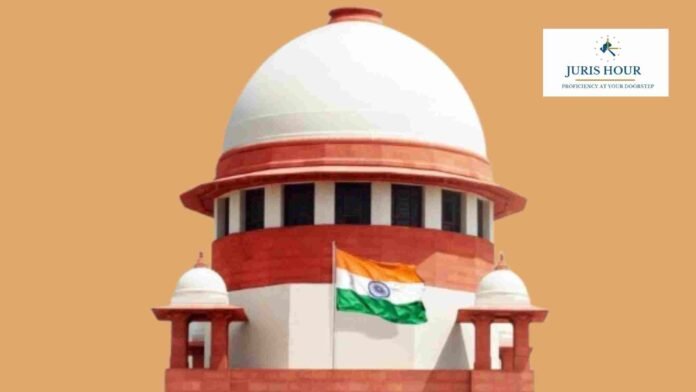The Supreme Court while clarifying the tax treatment of non-resident entities facing business interruptions, the Supreme Court has held that a temporary pause or “lull in business” cannot be equated with the cessation of business operations and the non-resident firm is entitled to income tax deductions.
The bench of Justice Manoj Misra and Justice Joymalya Bagchi restored the decision of the Income Tax Appellate Tribunal (ITAT) in favour of Pride Foramer S.A., a French offshore drilling company, allowing it to claim business expenditure deductions and carry forward unabsorbed depreciation under the Income Tax Act, 1961.
Pride Foramer S.A., incorporated in France, was engaged in offshore oil drilling for ONGC under a 10-year contract from 1983 to 1993. Although the company failed to secure another drilling contract until 1998 (formalised in 1999), it continued to correspond with ONGC from its Dubai and France offices and even submitted bids for oil exploration in 1996.
During the intervening years, the company incurred administrative and professional expenses while also earning interest on income tax refunds, which it declared as business income. The Income Tax Department, however, disallowed these business expense deductions and denied the carry-forward of unabsorbed depreciation, contending that the company was not carrying on any business during those assessment years (1996–97, 1997–98, and 1999–2000).
Assessing Officer (AO) & CIT (Appeals) held that Pride Foramer had ceased operations in India and was therefore ineligible for business-related deductions or depreciation benefits.
The ITAT, New Delhi reversed the above orders, observing that “a temporary lull in business cannot be treated as cessation.” The Tribunal emphasised that the company had continued its business efforts through correspondence and tender submissions, and its later success in 1998 proved continuity of intention.
The Uttarakhand High Court set aside the ITAT’s decision, reasoning that since Pride Foramer had no permanent establishment or office in India during the relevant years, it could not be considered to be conducting business in India.
The Supreme Court categorically disagreed with the High Court’s restrictive interpretation.
Justice Joymalya Bagchi, writing for the Bench, held that the appellant’s conduct — including constant communication with ONGC, maintaining staff, and submitting bids — clearly demonstrated an intent to continue business in India. The absence of an active contract did not mean cessation of business.
“If such conduct, from the standpoint of a prudent businessman, evinces intention to carry on business, mere failure to obtain a business contract by itself would not be a determining factor to hold the appellant had ceased its business activities in India,” the Bench observed.
Rejecting the High Court’s conclusion regarding the lack of a “permanent establishment” in India, the Court clarified that the Income Tax Act does not mandate a fixed office in India for a non-resident to be considered as carrying on business here.
“None of these provisions make it mandatory for a non-resident assessee to have a permanent establishment in India to carry on business,” the judgment stated, distinguishing between domestic tax liability and benefits under a Double Taxation Avoidance Agreement (DTAA).
The Bench criticised the High Court’s “anachronistic” approach, emphasising that in the era of cross-border commerce, communication and digital engagement can constitute legitimate business activity:
“In an era of globalisation whose life blood is trans-national trade and commerce, the High Court’s restrictive interpretation… is wholly anachronistic with India’s commitment to Sustainable Development Goal relating to ease of doing business across national borders.”
The Supreme Court allowed the appeals, set aside the Uttarakhand High Court judgment, and restored the ITAT orders. It directed the Assessing Officer to pass fresh assessment orders consistent with the ITAT’s findings.
Case Details
Case Title: Pride Foramer S.A. Versus Income Tax Commissioner
Case No.: Civil Appeal Nos. 4395-4397/2010
Date: 17/10/2025

